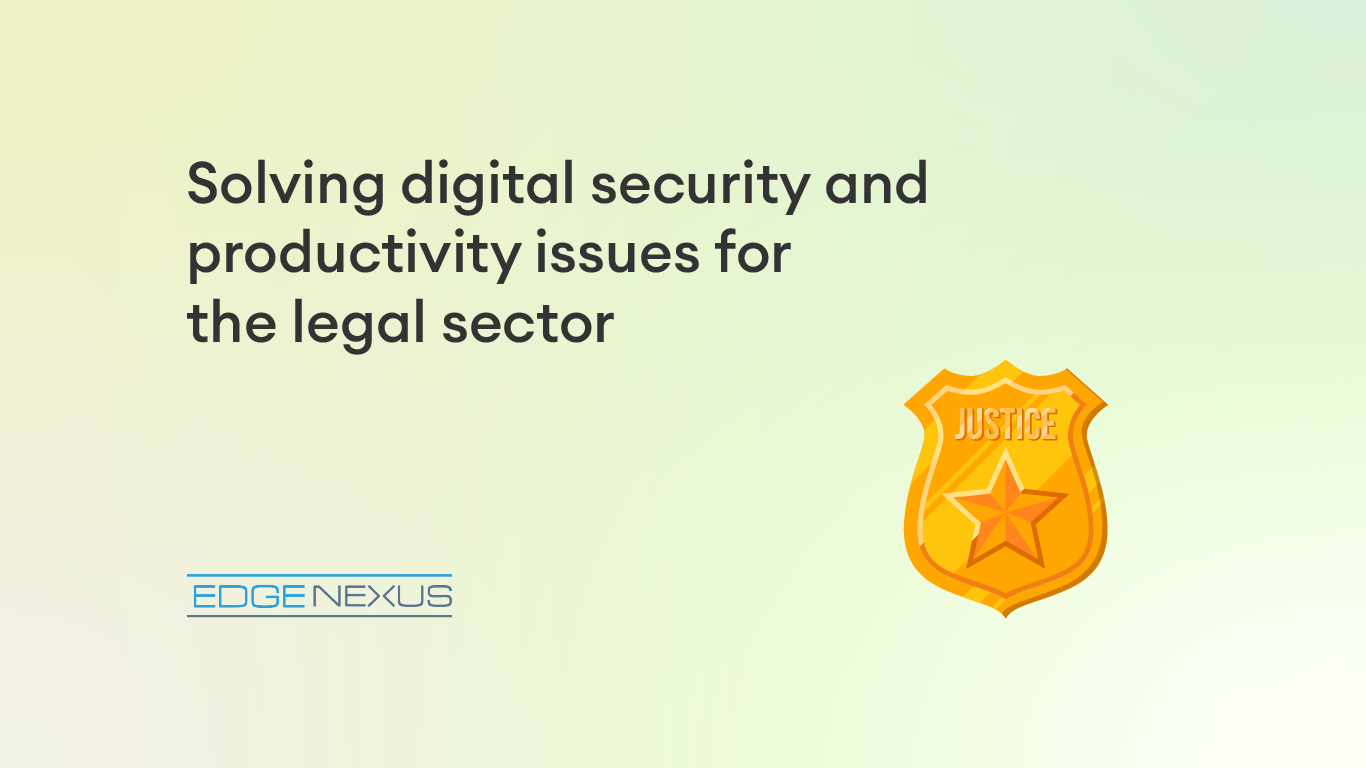Law firms have two pressing issues, supporting more work with fewer resources and managing security as their clients become cloud-centric firms. With customers unwilling to use old-fashioned and time-consuming approaches to contract management and other legal issues, technology has the answer to deliver secure solutions, law firms just have to be brave enough to accept it.
While law firms are often cast as behind the times when it comes to technology, the reality is often they are happy with the solutions they have in place, and there is little pressure or reason to keep up with cutting-edge cloud services.
However, changes in the nature of legal business are slowly pushing them to adopt cloud and a range of partner solutions to keep information secure and confidential.
Few law firms can continue to hire endlessly to support the growth in their contract, business law, and other departments. Instead, they are turning to legal automation services to handle the highly repetitive cut-and-paste nature that makes up a great deal of their work.
Recent examples include upgrading contracts to include GDPR rules, changing agreements to reflect Brexit changes, or generating the endless rafts of NDAs and financial agreements. Even case management, compliance audits, and legal accounting can improve with automation. By adopting workflow and document automation, it frees up lawyers, paralegals, legal secretaries, and others to focus on adding value and showcasing their innate knowledge.
Adopting those solutions and adapting operations to make the best use of them requires their IT departments to look beyond Office and DocuSign, and even the dreaded fax machine. They must embrace the cloud to link departments and clients, and ensure that data remains secure through strong risk management, especially in the remote working era driven by COVID.
These aims are no different from most other business types, but legal’s focus on privacy and security places these issues top of any agenda. Among the other goals to improve business efficiency is client self-service, reducing much of the contact that takes up legal time, and improving mobility, allowing clients and lawyers to move processes along wherever they are.
Cloud security and the law
Most legal firms operate private clouds to maintain privacy and security, safekeeping client information. But, increasingly applications and services leverage public clouds, and data will cross many networks to reach a recipient or partner.
By 2019, some 26% of legal firms had been the victim of some form of a data breach according to an ABA Cybersecurity Tech Report. Many of these will have been incidental, a lot of hacking efforts are broad-based trying to find weaknesses in any company’s defenses. However, as most legal information is privileged, law firms will also be the focus of specific attacks
The basics of protecting that data and your services including:
- High-level restrictions on who can access what files, with strong passwords or phrases and two-factor automation limiting access.
- Encryption of files for storage and when traveling across networks.
- Firewalls, both web application firewalls (WAFs) to protect data and cloud services, and on-premises firewalls to protect the business.
- Load balancers to ensure cloud availability and uptime, across global or regional connections.
- Compliance automation tools to ensure the growing volume of data is correctly managed.
Beyond these technical means, training staff to spot phishing attempts and malware will prevent the majority of attacks. Human error is still the number one cause of a breach, but there are cloud services that can check other applications for misconfigurations and weaknesses, highlighting the collaborative and reinforcing nature of cloud services.
Increasingly, law firms have nothing to fear from the cloud, with the value of modern services adding business value and improving efficiency. Cloud can be just as secure as in-office services, and automatically updated, keeping businesses current, more secure and with new features, all while reducing large capital expenditure.











